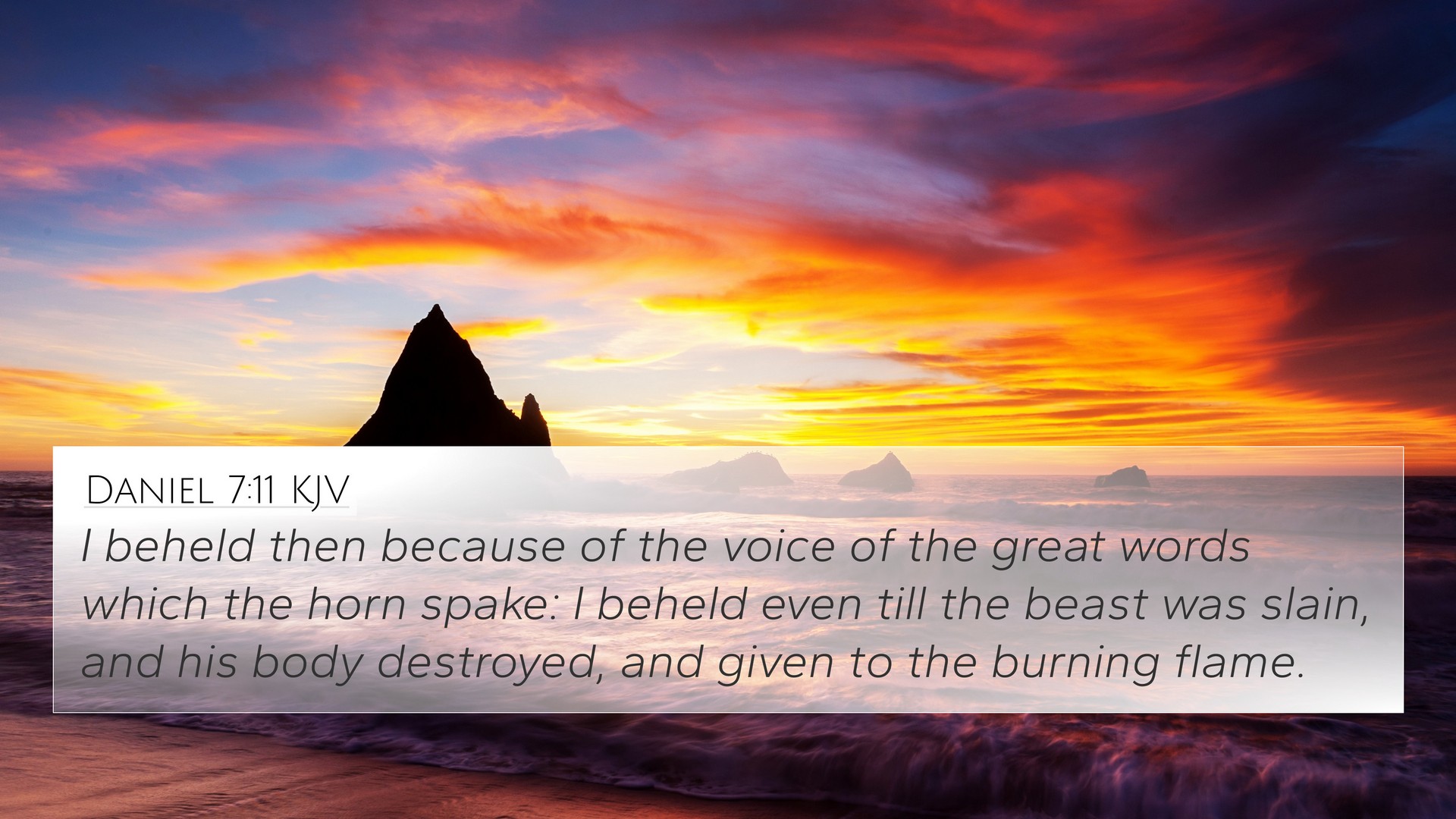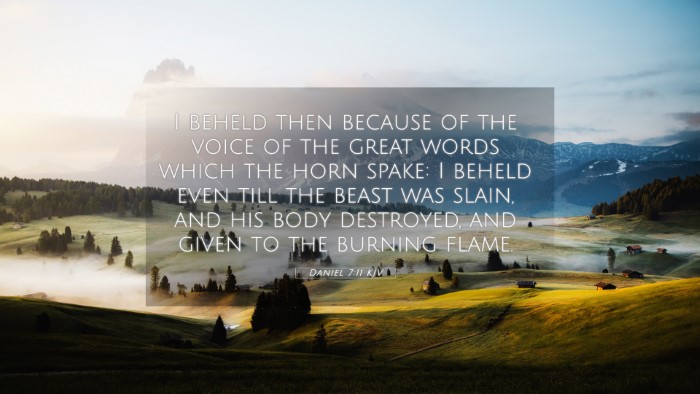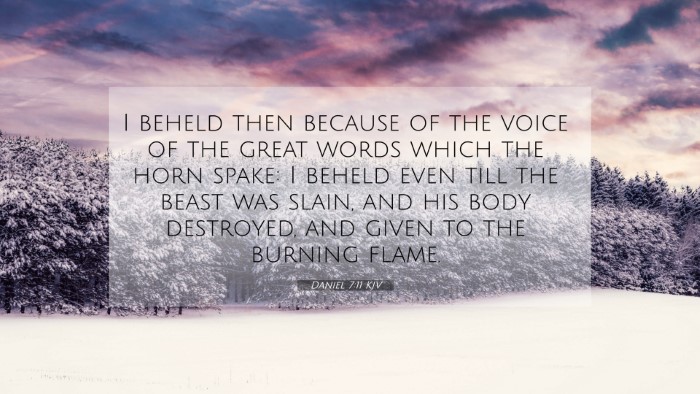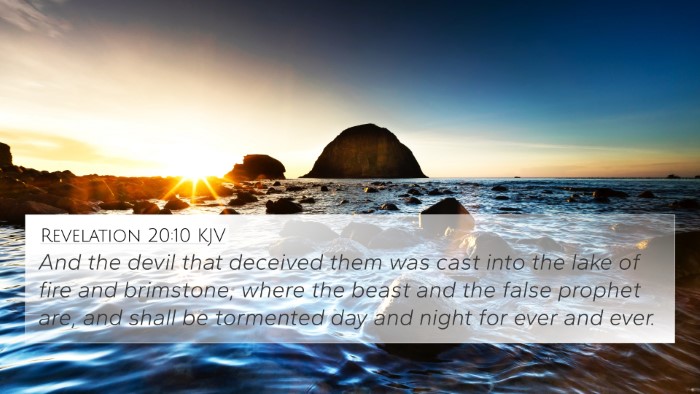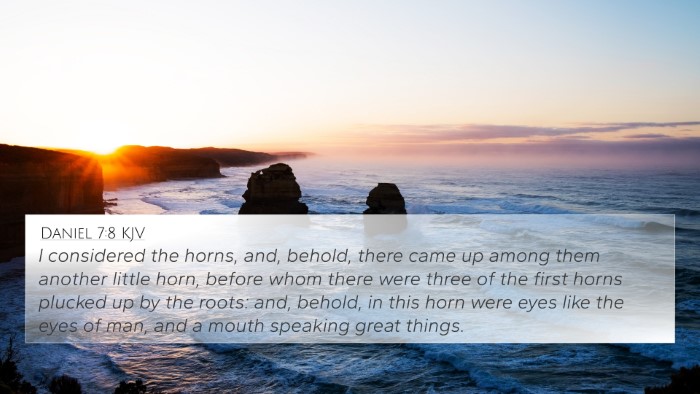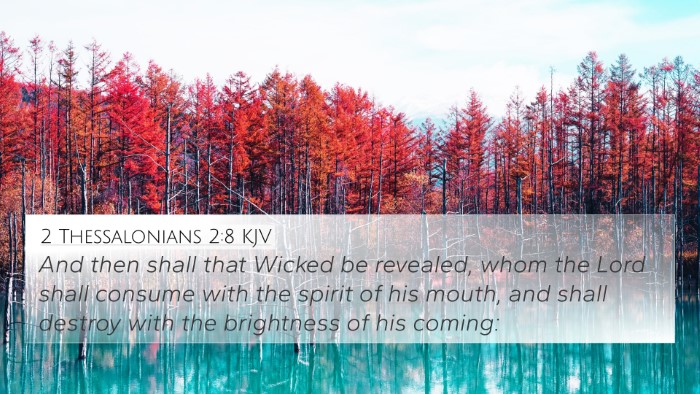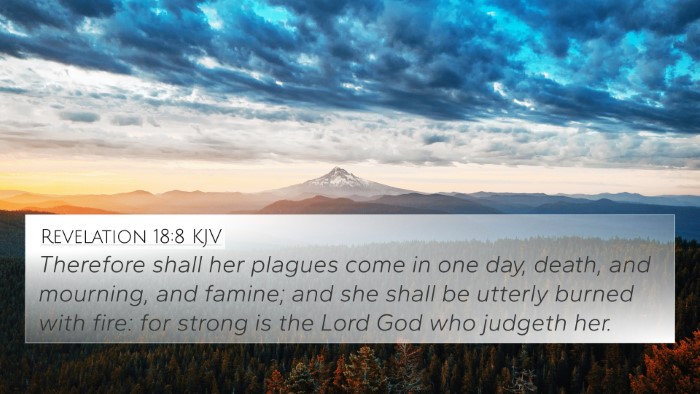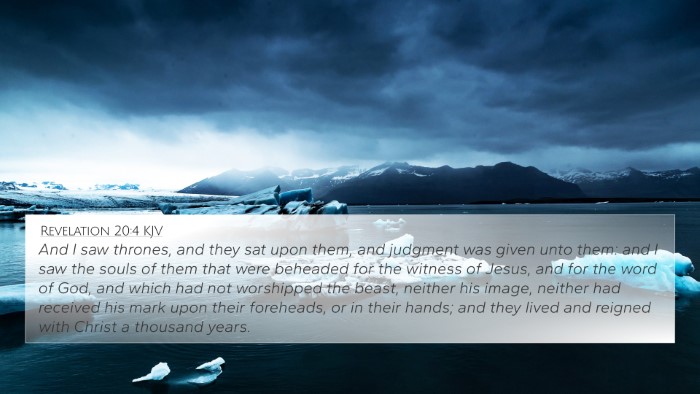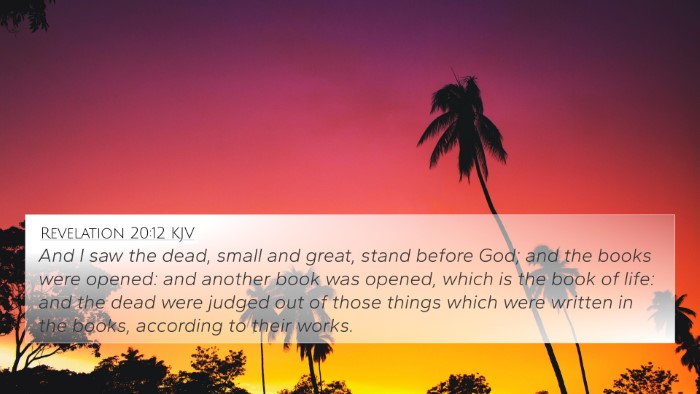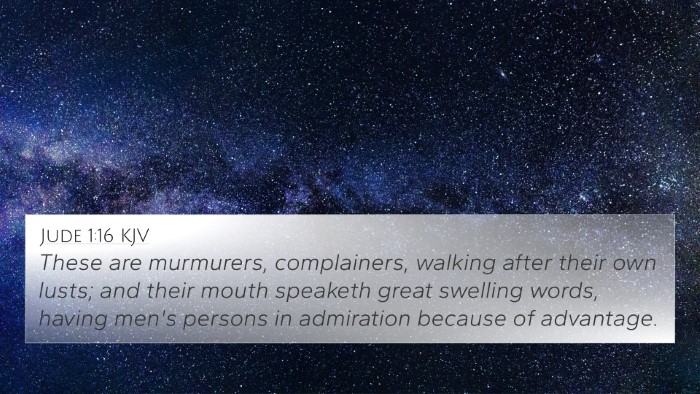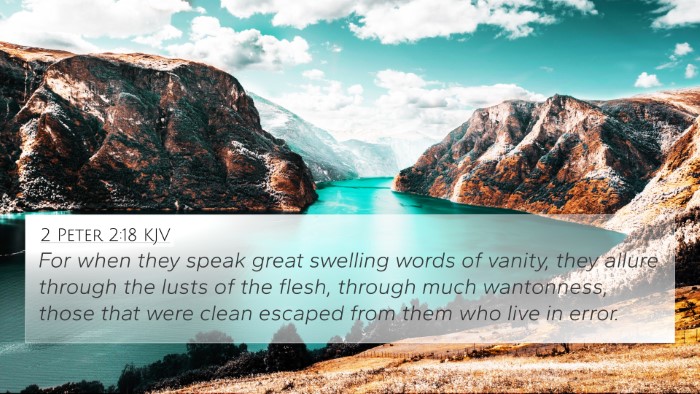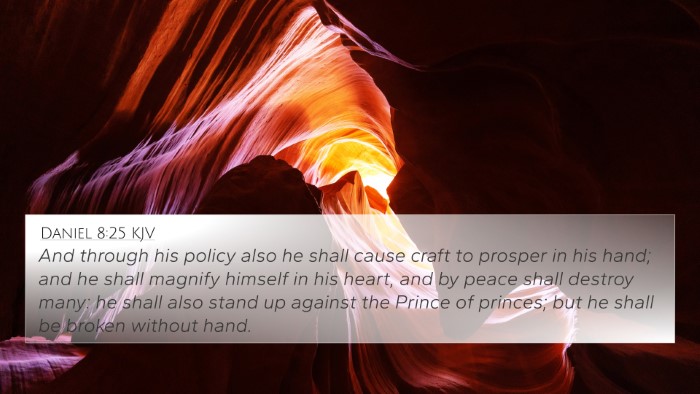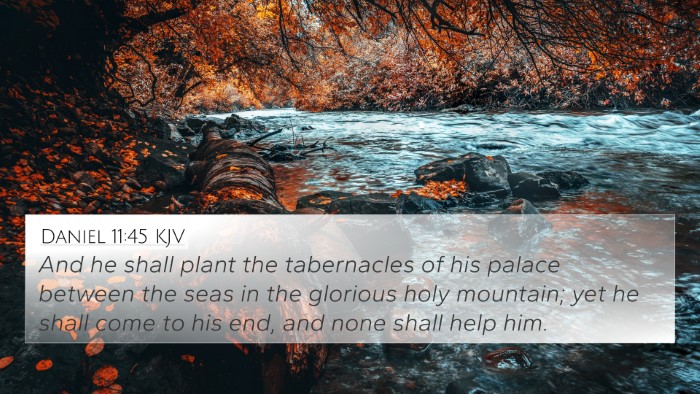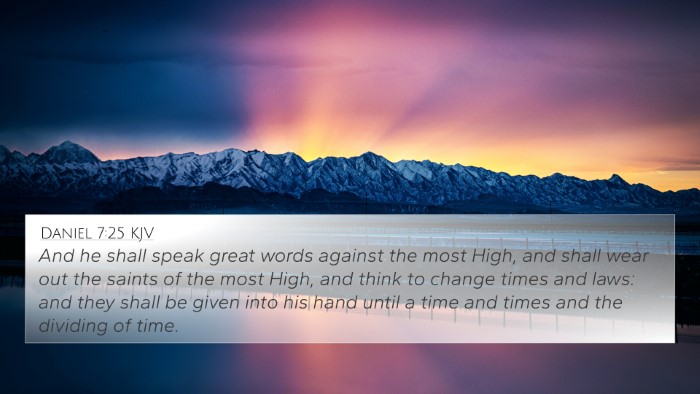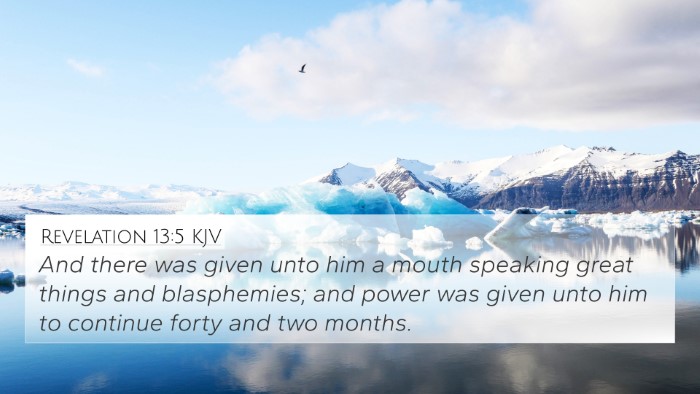Understanding Daniel 7:11
Daniel 7:11 states: "I beheld then because of the voice of the great words which the horn spake: I beheld even till the beast was slain, and his body destroyed, and given to the burning flame." This verse is steeped in rich imagery and symbolism that reflects God's ultimate authority over empires and kingdoms, and the inevitable demise of those opposed to His will.
Verse Interpretation
In Daniel 7, the prophet Daniel receives a vision that reveals God's sovereignty. Daniel sees four great beasts representing different kingdoms arising from the sea, culminating in the vision of a divine judgment where the final beast is defeated.
The Horn and Its Significance
The "horn" mentioned is often interpreted as a symbol of pride and power, likely referring to a king or kingdom that speaks blasphemous words against God. This aligns with commentaries from Matthew Henry, who notes the pride and arrogance of earthly powers before the divine judgment.
The Beast and Its Fate
When Daniel observes the beast being slain, it signifies the end of tyranny and the ultimate victory of God's kingdom. Adam Clarke emphasizes that this judgment is an assurance to believers that God's justice will prevail.
The Burning Flame
The imagery of the beast’s body being destroyed and cast into the burning flame is a metaphor for eternal judgment. Albert Barnes points out that this reflects the fate of those who oppose God's will, echoing themes found in Revelation 20:10 about the lake of fire.
Connections with Other Scriptures
This verse connects deeply with several other biblical texts. Here are some key cross-references:
- Revelation 19:20 - The fate of the beast in the apocalyptic context.
- Isaiah 66:24 - The image of eternal punishment.
- 2 Thessalonians 2:8 - The Lord's destruction of the lawless one.
- Matthew 25:41 - The eternal fire prepared for the devil and his angels.
- Psalms 37:20 - The fate of the wicked compared to the righteous.
- Daniel 2:44 - God's everlasting kingdom replacing earthly kingdoms.
- Revelation 20:14-15 - The second death and the fate of the wicked.
Comparative Analysis
In performing a comparative Bible verse analysis, one can examine how the themes of judgment and sovereignty permeate the entire Bible. Daniel's vision anticipates the struggles found in the New Testament, particularly in Revelation, where the ultimate triumph of God over evil is realized.
Thematic Connections
The themes in Daniel 7:11 resonate with key biblical motifs such as:
- Divine Sovereignty: God's power over worldly kingdoms.
- Judgment: The certainty of divine judgment against evil.
- Hope: Assurance for believers that God's justice will prevail.
Tools for Further Study
To delve deeper into biblical connections, utilizing a Bible concordance can help identify themes and cross-references effectively. Resources like a Bible cross-reference guide can be invaluable for exploring how various scripts relate to Daniel 7:11.
Cross-Referencing Techniques
Here are a few methods on how to use Bible cross-references effectively:
- Use a Bible reference resource that highlights parallels.
- Engage in cross-referencing Bible study to uncover connections.
- Conduct thematic Bible verse connections to explore broader narratives.
Conclusion
Daniel 7:11 serves as a poignant reminder of God's ultimate authority and justice. The prophetic imagery encourages believers to find hope and assurance in the face of earthly trials and tribulations. By employing tools for cross-referencing, one can discover a rich tapestry of scripture that underscores the timeless truth of God's sovereign reign.
